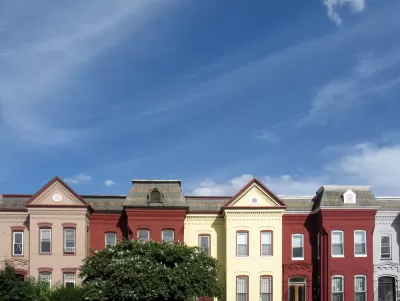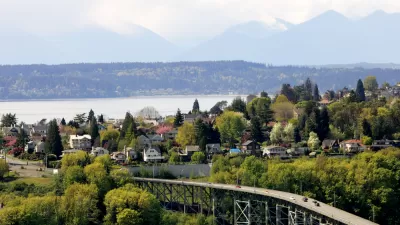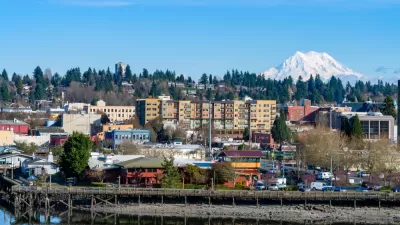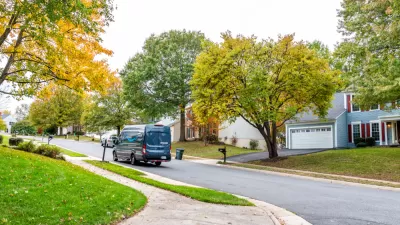Cities looking to follow Minneapolis's lead in overturning the status quo of exclusionary zoning should consider "gentle density," according to this article.

Alex Baca, Patrick McAnaney, and Jenny Schuetz write about a potential approach to several of the challenges in the American housing market: gentle density.
"[As] communities across the U.S. grapple with worsening housing affordability, there is growing interest in how zoning rules could be relaxed to allow smaller, less expensive homes," write the trio. "While high-rise apartments in strategic locations should be part of the solution, many single-family neighborhoods could easily yield more housing—and more affordable housing—if land use rules allowed 'gentle' increases in density, such as townhomes, two- to four-family homes, and small-scale apartment or condominium buildings."
The bulk of the article is devoted to illustrating how gentle density could increase the number of homes and lower housing costs in Washington, D.C.
FULL STORY: “Gentle” density can save our neighborhoods

Planetizen Federal Action Tracker
A weekly monitor of how Trump’s orders and actions are impacting planners and planning in America.

Restaurant Patios Were a Pandemic Win — Why Were They so Hard to Keep?
Social distancing requirements and changes in travel patterns prompted cities to pilot new uses for street and sidewalk space. Then it got complicated.

Map: Where Senate Republicans Want to Sell Your Public Lands
For public land advocates, the Senate Republicans’ proposal to sell millions of acres of public land in the West is “the biggest fight of their careers.”

Maui's Vacation Rental Debate Turns Ugly
Verbal attacks, misinformation campaigns and fistfights plague a high-stakes debate to convert thousands of vacation rentals into long-term housing.

San Francisco Suspends Traffic Calming Amidst Record Deaths
Citing “a challenging fiscal landscape,” the city will cease the program on the heels of 42 traffic deaths, including 24 pedestrians.

California Homeless Arrests, Citations Spike After Ruling
An investigation reveals that anti-homeless actions increased up to 500% after Grants Pass v. Johnson — even in cities claiming no policy change.
Urban Design for Planners 1: Software Tools
This six-course series explores essential urban design concepts using open source software and equips planners with the tools they need to participate fully in the urban design process.
Planning for Universal Design
Learn the tools for implementing Universal Design in planning regulations.
Heyer Gruel & Associates PA
JM Goldson LLC
Custer County Colorado
City of Camden Redevelopment Agency
City of Astoria
Transportation Research & Education Center (TREC) at Portland State University
Camden Redevelopment Agency
City of Claremont
Municipality of Princeton (NJ)





























